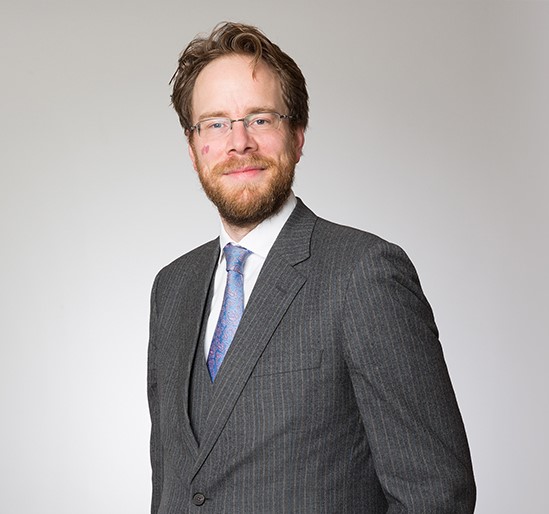
Perseverance. I completed a non-law degree prior to undertaking the law conversion course. My original degree was in Economics and Sociology, which I studied at Surrey University.
My friends considered it a little foolhardy for me to attempt to become a Barrister, given the competition for places. After 4 years of trying to obtain pupillage, I was finally given an opportunity by Carmelite Chambers (for which I will forever be grateful). However, I was not taken on after pupillage and so spent 9 months seconded to the CPS extradition unit, before becoming a third six pupil at Dyers Chambers. Dyers then offered me tenancy, 7 years after having been called to the Bar.
What has been your biggest career challenge so far?
Prior to last year, I would have said securing tenancy. However, trying to balance my practice with being a father, moving house, living through a pandemic and writing a book has entailed a whole new level of difficulty. Writing A Practical Guide to Extradition Law Post-Brexit was rendered more difficult due to the UK and EU being unable to reach an agreement until 24 December 2020. This meant that large swathes of the book that had been written on the premise that we would be reverting to the European Convention on Extradition to govern arrangements with our EU partners were rendered otiose and had to be re-written. The book is now (finally) due to be published this month.
Which person within the legal profession inspires you most?
Being unable to choose one, I would opt for both Edward Fitzgerald QC and Sir Keir Starmer QC. Whilst striving to secure pupillage I was fortunate enough to obtain a scholarship to assist death row inmates in Jamaica with their appeals to the Privy Council. A few years after my return to London, the Death Penalty Project (‘DPP’) employed me as a researcher, assisting Counsel who were arguing cases from all over the Caribbean before the Privy Council. Messrs Fitzgerald and Starmer were two of the most dedicated Counsel who assisted (on a pro bono basis) the charity and, notwithstanding their phenomenally busy practices, they were in communication with the DPP on an almost daily basis. The manner in which they have helped to successfully challenge the death penalty across the Caribbean, as well as other Commonwealth jurisdictions, was awe inspiring and they can be proud of the legacy they have left.
If you weren’t a lawyer, what would you choose as an alternate career?
I had wanted to be a diplomat with the FCO. Travelling the world, learning new languages and meeting interesting people had always appealed to me.
Who is your favourite fictional lawyer?
I was inspired to come to the Bar having read the books The Power of One and Tandia by Bryce Courtenay. The stories follow a young human rights lawyer, Peekay, as he grows up in a South Africa ravaged by apartheid. This fictional character was my inspiration to go to the Bar.
What change would you make to the profession?
I would ensure that those who choose to practice in the publicly funded areas of law are properly remunerated by the State for the vital work that they undertake. Having practised criminal law through a period of continued cuts in public funding, I encountered a number of very talented and committed young barristers leave the profession they loved as they could no longer afford to keep going.
How do you relax?
I have yet to learn how to. It is one of my shortcomings.
Myles Grandison, Kathryn Howarth, Daniel Sternberg, Benjamin Seifert, Émilie Pottle, Saoirse Townshend, Emily Wilsdon and Juliet Wells have recently written A Practical Guide to Extradition Law Post-Brexit published this month by Law Brief Publishing.









